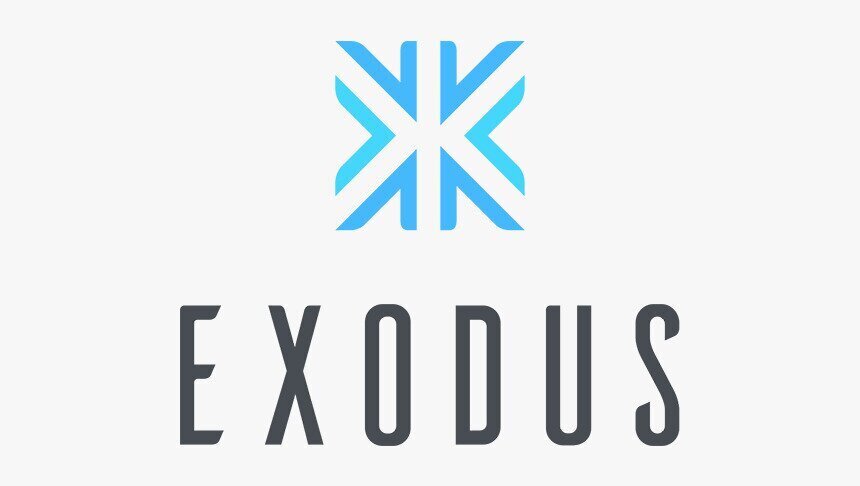- >Best Crypto Wallets
- >Exodus vs Electrum Wallet
Exodus vs Electrum Wallet
Cryptocurrency is all about removing trust from third parties and taking full responsibility for one’s own money. Wallets are used to manage one’s crypto assets. Two such wallets for crypto users are Exodus and Electrum. While Electrum is laser-focused on Bitcoin, Exodus is a more general client that allows users to use a variety of crypto assets in a single application.
Exodus Overview
Exodus is an all-in-one cryptocurrency wallet software that works on desktop and mobile operating systems. Users are able to track their entire crypto portfolio in a single, easy-to-understand interface, and there is an in-app exchange integration that even allows users to buy and sell various crypto assets. For more information on Exodus, visit our comprehensive review of the wallet.
Exodus Pros & Cons
Pros
Exchange between crypto assets in the wallet app
Track your entire cryptocurrency portfolio in one location
Can be used on both mobile and desktop environments
Works with major hardware wallets
Cons
Two-factor authentication options are not available
Wallet software is not completely open source
Electrum Overview
In terms of Bitcoin wallets that you can download on your computer, Electrum is a really good option. This software wallet was launched in 2011, which is two years after the initial launch of the Bitcoin network. Electrum is the Swiss Army knife of Bitcoin wallets in that it supports a wide variety of advanced functionality that is oftentimes missing from other wallets. For a more in-depth analysis of Electrum, our review can be found here.
Electrum Pros & Cons
Pros
Supports multisignature addresses
Supports multiple hardware wallets
Two-factor authentication mechanisms (albeit with an additional fee)
Wallet software code is open source
Cons
Electrum wallet has been susceptible to security breaches
Bitcoin is the only asset supported by this software wallet
Beginner Friendliness
Exodus and Electrum are both useful options for someone who is new to the world of cryptocurrencies. Anyone who uses either one of these pieces of wallet software will be able to learn more about how this new technology works after playing around with it for a few minutes.
If you are a beginner who is only interested in Bitcoin, then Electrum will be the best option available to you, as the wallet contains a number of advanced wallet features, such as multisignature addresses and Segregated Witness. The wallet also has plans to add Bitcoin Lightning Network functionality in the near future, so anyone interested in playing around with this layer-two payments technology will be able to do so via this wallet.
Those who are more interested in storing a wide variety of crypto assets may prefer Exodus, as it allows users to store more than 100 different cryptocurrencies in the same wallet software and track their entire crypto portfolio in one location. Additionally, the user interface in Exodus is extremely user friendly and easy to understand for anyone who is new to cryptocurrencies.
Trust & Security
Trust and security are also extremely important factors to consider when it comes to choosing a cryptocurrency software wallet. Since Exodus has portions of it that are closed source, Electrum should definitely be the preferred wallet of choice for someone who is extra concerned about trust and security. Many experts view the use of closed-source elements in this sort of critical software as a non-starter.
That said, Electrum did have a security issue in the past related to Electrum software updates. Specifically, Electrum clients were tricked by Electrum servers into downloading malicious software that led to the loss of user funds. This security vulnerability has since been fixed in the newer version of Electrum. This is an example of the sorts of issues that can pop up when you are outsourcing a bit of trust to a third party.
Electrum also supports two-factor authentication and multisignature addresses, which are potentially helpful from a security perspective for those who wish to use these features. Additionally, the fact that Electrum has existed since 2011 and become one of the most popular Bitcoin wallets on the market means the software has become increasingly hardened against potential attack vectors over time.
Both of these wallets also support hardware wallets that can offer a tremendously large increase of security for users.
Installation and Set Up Process
The installation and set up processes for these two software wallets is rather simple, and both have a step-by-step guide to follow when the software is opened for the first time. Setting up either one of these wallets will basically involve a process of downloading the software, opening up the software, backing up a seed phrase, and receiving your first cryptocurrency transaction. The process is a bit more complicated on Electrum, as there are more options to consider due to the potential use of multisignature addresses or two-factor authentication. That said, Electrum also has a degree of simplicity to it during the setup process, as it only supports one cryptocurrency (Bitcoin).
Available Cryptocurrencies
As mentioned previously, Electrum only works with Bitcoin. Having said that, there are a number of unofficial, alternative clients that have been built to support a variety of altcoins. Users will need to download and install completely different software to effectively add support for alternative coins, and the number of altcoins that have their own Electrum forks is rather limited.
By comparison, Exodus supports a large number of crypto assets. Currently the software supports 114 different cryptocurrency assets, and that number is likely to increase in the future. According to Exodus, they only consider adding coins that are in the top 50 or have the potential to enter the top 50 of all crypto assets when ranked by market cap and trading volume.
App Compatibility
Both of these pieces of wallet software receive solid marks when it comes to app compatibility. Electrum and Exodus both work on desktop and mobile operating systems, and they also offer easy integration for hardware wallets, such as the devices made by Ledger and Trezor.
Electrum offers additional functionality via their multi-signature architecture that can be useful to those creating multisig Bitcoin wallets. By setting up a wallet that requires a signature from both a desktop and mobile wallet, a user is able to create what is effectively an on-chain version of two-factor authentication. It should be noted that only advanced users should attempt to create their own multi-signature Bitcoin wallets. It can be a somewhat complicated process that can result in the loss of funds if a user does not really understand what they are doing.
Stand Out Features
Both Electrum and Exodus have stand out features that will attract certain segments of the cryptocurrency userbase.
For Electrum, it is well known that this should be your wallet of choice if you are a somewhat advanced user who wants to take advantage of the latest features when they are added to the Bitcoin network. Electrum has supported Segregated Witness transactions for years, while other wallet providers are still dragging their feet. Other examples of enhanced functionality available via Electrum include their use of multisignature wallets and upcoming support for the Bitcoin Lightning Network.
With Exodus, the stand out feature is the fact that this wallet operates as a sort of one-stop-shop for your crypto asset investment needs. The wallet interface looks more like a portfolio tracker than a traditional cryptocurrency wallet, and users are also able to change between different crypto assets from within the app. However, the easy-to-use interface associated with Exodus comes at a cost, as the rate for exchanging between different cryptocurrencies from within the wallet can be relatively high.
Conclusion
Choosing between Exodus and Electrum will come down to how you intend to interact with the cryptocurrency ecosystem. If you are someone who only cares about the world’s most popular cryptocurrency, Bitcoin, then Electrum is one of the best available options for you on the market right now. Anyone who is interested in storing a variety of crypto assets on their computer or smartphone will be better off with Exodus. However, the use of closed source software also needs to be considered. Anyone who wants to be serious about their use of Bitcoin and other cryptocurrencies should make a point to avoid closed-source software as often as possible.







